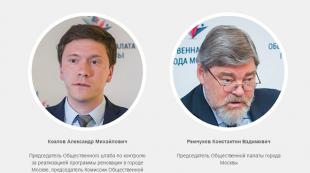From criticism to action: how Trump is trying to reform the UN. UN reform is a vital requirement
Trump calls on United Nations to tighten its belts
US President Donald Trump has repeatedly complained that the UN is ineffectively spending its budget, most of which is provided by Washington. On September 18, he was supposed to finally move from words to deeds and present a declaration on the reform of the international organization. However, the likelihood of its implementation is low: the permanent representative of Russia, that our country, most likely, will not sign this document. The American declaration calls for cutting the costs of the UN and some of its staff, but not all countries consider this the main problem of the organization. In addition, observers are irritated by the fact that the United States did not even bring the document up for discussion before the vote.
The US declaration contains ten points. As Reuters learned in early September, the draft document talked about cutting the organization's budget and employees. “We are convinced that it is necessary to get rid of overlapping mandates and excesses, including in the main UN bodies,” the agency quoted the declaration as saying.
"The President is going to say that the United Nations cannot be effective until it reforms its bureaucracy and achieves greater accountability to Member States," his national security adviser, Herbert McMaster, revealed details of Trump's planned speech.
The Permanent Representative of the Russian Federation to the UN, Vasily Nebenzya, said that Russia most likely will not sign the document proposed by the United States. “The reform itself is carried out not through the adoption of a declaration, but through the intergovernmental negotiation process of all member countries,” the diplomat emphasized. He also noted that on the eve of the proposal of the document, which he called a “manifesto of like-minded people” of the United States, there was no discussion of it, so it is unlikely that all countries will agree to sign it.
Trump has repeatedly criticized the UN, which, in his opinion, has become a kind of club of interests, where “people gather, talk and have a good time.” However, the low efficiency of the United Nations would hardly have worried Trump so much if the United States had not made the largest contribution to its budget. According to Reuters, the United States provides 22% of the main biennial UN budget and 28.5% of the budget for peacekeeping operations. Trump, as a supporter of optimizing spending on all fronts, simply could not help but raise the issue of cutting funding for an international organization. True, not all states can agree with him. After all, if developed countries send funds to the UN budget, developing countries receive them. And they are not going to vote for tightening their own belts.
“This is a PR move by the American side, and not a very successful one,” Deputy Secretary of the Public Chamber of the Russian Federation, former Deputy Secretary General of the UN, Sergei ORDZHONIKIDZE, shared his opinion in a conversation with MK. “If you really think about reform, then it should include it says what, how and when you want to reform. But in the American statement that they gave us, there is nothing like that. There are just some declarative points there. But you can’t change it with UN declarations. There are rules, procedures, appropriate committees. Any UN reform is adopted by the General Assembly by voting. And for this it is necessary to specify what needs to be changed, how much to reduce, what the budget will be. And serious contradictions may arise on this matter: different countries have different interests.
The invitation to the UN summit sent to us by the American side read something like this: “If you agree with the above ten points, we invite you.” The question is, can the state express its thoughts before agreeing? They don't allow it. Why then organize a summit, why meet at all, if everyone has already agreed?
That’s why neither we nor the Chinese went to this meeting. And without Russia and China, as practice shows, nothing ever happens at the UN. I think there won't be that many countries there. There have been dozens of such summits in my memory, and the results from them were not very great if there were no specific proposals in the documents.”
The US President announced the need to reform the UN and optimize the organization's expenses. More than 60 states have not signed a declaration on this; the possibilities of implementing Trump’s plan are small, experts say
Donald Trump (Photo: Lucas Jackson/Reuters)
Trump Declaration
Donald Trump spoke for the first time at the UN on September 18 and stated about the need to reform the organization. This happened at a meeting of all interested countries convened at the initiative of the United States.
“The UN has not reached its full potential due to bureaucracy and mismanagement,” the president said, emphasizing that the organization’s budget has more than doubled since the 2000s, but its effectiveness still does not correspond to the funds spent. Priority must be given to the people, not the bureaucracy, to “focus on results, not on process,” each peacekeeping mission must clearly understand its goals, and its effectiveness must be measured somehow, Trump said .
The United States, even before its leader’s speech, developed a political declaration in support of the reform, which all interested countries can sign. The declaration is not a legally binding document. It speaks of support for the efforts of UN Secretary General Antonio Guterres to improve the efficiency of the organization, and the commitment of all countries to increase trust among its members. Countries that sign the declaration will express support for reforms aimed at reducing duplicative and overlapping functions and structures of the UN. It also speaks of support for the Secretary General's intention to strengthen budget planning, which will increase the predictability of expenditures and their transparency.
António Guterres himself expressed support for the declaration at the meeting on September 18. Speaking after Trump, the secretary general agreed with his assertion that bureaucracy at the UN is a problem that must be fought.
The United States is now the largest contributor to maintaining the organization, which includes 193 countries. In 2017, the UN budget is $2.776 billion, of which $610.84 million are American contributions.
Negotiations needed
It is impossible to reform the UN through declarations; reforms can only be achieved through negotiations. UN reforms must be carried out through dialogue between all member countries of the organization, he said on September 18 in an interview with TASS. He expressed doubt that all UN members would sign the declaration proposed by the United States, since no approval process had taken place on the eve of its nomination. The declaration was signed by almost 130 countries, said US Permanent Representative to the UN Nikki Haley. According to TASS, the states that have not signed the declaration include Russia, China and France, which are permanent members of the UN Security Council.

Nikki Haley (Photo: Mary Altaffer/AP)
However, Moscow agrees that the UN needs some reforms. “The organization needs to be reformed, but not radically,” Nebenzya clarified.
Trump's intentions to cut funding for the United Nations are cause for concern, as humanitarian programs in South Sudan, Congo and other hot spots could suffer as a result, Al Jazeera pointed out. US Permanent Representative to the UN Nikki Haley did not clarify during a briefing on September 15 whether the US will continue to fund UN programs in the same amount.
Experts also point out that reforming the UN, which was created in 1945 and responded to the realities of that time, is not easy. UN reform “is an old game” that the United States is playing, Anne Bajewski, a professor at Touro College in New York, told Al Jazeera.
Implementing reforms will not be easy, as there are differences among the organization's members, each with their own priorities, notes Zalmay Khalilzad, former US ambassador to the UN (2007-2009), in a column for The National Interest. “The United States and its allies want the UN to emphasize governance reform to improve transparency, accountability, efficiency and productivity. Developing countries are eager to become permanent members of the UN Security Council, but oppose administrative reforms aimed at reducing costs,” says Khalilzad. In his opinion, developing countries benefit from the management system that has developed at the UN over many years.
In 2013, 17 UN member states (less than 9% of the organization's total membership) contributed 80% of the organization's total budget, while the remaining 176 countries contributed only 18%, although their representatives made decisions on how the budget should be spent, Khalilzad notes. .
Debut at the General Assembly
On September 19, US President Donald Trump will speak for the first time at the debate of the UN General Assembly. He is expected to speak on major international issues: the nuclear missile program, the fight against international terrorism, global climate change, the Iran nuclear deal, and the Rohingya in Myanmar.
Russian and Chinese leaders Vladimir Putin and Xi Jinping are not participating in the current session of the General Assembly. The delegations of the two countries will be headed by Foreign Ministers Sergei Lavrov and Wang Yi.
The old and doomed to uncertainty problem of reform of the UN Security Council arises in the global information field whenever issues of war and peace are updated. In 2017, Kazakhstan also expressed a desire to improve the work of one of the six main UN bodies. But there is no compromise recipe for reform, and the chances of its emergence and application in the near future are quite slim.
Loud sounds are once again heard ahead of the 72nd session of the UN General Assembly, which begins its work on September 12. Politicians are beating the timpani, issuing triumphant reports that reform of the UN Security Council is long overdue and overdue. What can I say, the activities of the UN as a whole raise many criticisms. Many countries want to reform this organization, but their versions are difficult to agree with each other. But what is more important is not even this, but the fact that even if changes take place, it is not at all a fact that the result will be more effective.
In early September, media reported that US President Donald Trump was planning to meet with world leaders to discuss UN reform, which he said was "a club of people getting together to talk and have a good time." The meeting is scheduled at UN headquarters on September 18, a day before the American president’s speech at the General Assembly session. At the same time, it is reported that one of the world leaders - President of the Russian Federation Vladimir Putin - should not be expected at this meeting. Journalists refer to a certain 10-point document, including a call on UN Secretary General Antonio Guterres to “begin effective and expedient reform” of the organization. This is not the first time D. Trump has expressed public dissatisfaction with the work of the UN; moreover, he does not like the high, according to him opinion, the US share in the organization's budget (approximately 22%).
Soon, on September 5, the heads of the BRICS countries called for reform of the UN, including the Security Council, in order to increase the representation of developing countries. The adopted 43-page declaration stated that the BRICS countries advocate “the need for comprehensive reform” that “will help increase the representativeness, efficiency and effectiveness of these structures, as well as more broadly represent developing countries in them, in order to adequately respond to global challenges.” .
Meanwhile, calls for comprehensive UN reform began immediately after the collapse of the USSR and, accordingly, the end of the Cold War. The architecture of international relations has changed. Even a working group was created to carry out the reform. 25 years have passed since then, but things are still there.
True, it is worth noting that in the 1960s it was possible to push through the reform of the Security Council - then the number of its non-permanent members was increased from 6 to 10 to reflect the quantitative growth of UN member countries (at that time - 117 states) after the “parade of independence” of the former colonies. Thus, the Security Council began to consist of 15 members. Today the UN includes 193 states. It is logical to assume that the composition of the Security Council should expand, taking into account the changing geography of the population on the planet, the spread of religions, as well as the limitation of the veto power available to the five permanent members. A large number of highly developed countries, such as Germany and Japan, apply for membership in the body. India, which is home to more than 1.3 billion people, believes that it has the right to participate in solving world security problems.
But it is unlikely that the five guests will refuse to maintain the status quo. In addition, as is known, in accordance with Article 24 of the UN Charter, the Security Council is entrusted with primary responsibility for maintaining international peace and security. At the same time, UN rules indicate that changing the composition of the “ruling five” involves changing the UN Charter, which will require the support of two-thirds of the General Assembly, including the countries of the five itself. It is clear that this is a serious obstacle. Therefore, it is more realistic to look at reform efforts from the point of view of “if it works, don’t touch it.” Be that as it may, the Security Council and the UN have existed for 72 years and are achieving certain results. And, despite the criticism, they did not lose their prestige. In a sense, this is a shadow world government. It is impossible not to take into account the military potential of this body and the peacekeeping forces that are under the wing of the Security Council.
For example, for seats as a non-permanent member of the Security Council there is serious competition between countries that submit their applications several years in advance. After all, two-year membership in the Security Council, although it does not provide the opportunity to veto resolutions, and also implies some other structural restrictions, but increases the recognition and prestige of a particular country at the international level. This also implies acquiring the right to impose sanctions, conduct military operations and peacekeeping operations.
This year, in the next series dedicated to the struggle for UN reforms, a new player has appeared, and he does not want to act as a statistic. This is Kazakhstan, which has been willingly striving for success in the world diplomatic arena for many years. Kazakhstan was elected as a non-permanent member of the Security Council on a geographical basis from the Asia-Pacific Group of States for 2017-2018, which is presented in the Kazakh media as nothing less than a triumph of Kazakh diplomacy. “The election to the UN Security Council confirmed the great respect that the peace-loving, constructive foreign and domestic policy of our country and President Nursultan Nazarbayev enjoys in the international community,” the Kazakh Foreign Ministry said in a statement.
This is truly a success for the republic. Kazakhstan is not the first country in the post-Soviet space to receive a seat as a non-permanent member of the Security Council. However, more than 60 UN member states have never been elected to it. But the Republic of Kazakhstan is the first state in Central Asia to receive this status. Considering that Afghanistan is located nearby and no one has canceled the theoretical possibility of conflicts in the region and border clashes, the significance of Kazakhstan’s membership in the UN Security Council as a representative of the Central Asian region is very high.
I would like to hope that Kazakhstan will propose reforming the Security Council, because our country - and this was the advantage of the Kazakh proposal - does not experience contradictions or difficulties with any of the permanent members of the Security Council, as well as the current non-permanent members of the body, elected for a period of two years. I believe that Kazakhstan’s “non-conflict path” will lead to its opinion being listened to more carefully.
But the strength of Kazakhstan’s position lies not only in this. In the modern world, a number of issues related to nuclear weapons and international security are acute. There is no consensus on missile defense and reduction of tactical nuclear weapons. The problems of non-proliferation, as well as strengthening cooperation between states in the field of countering nuclear terrorism, have not been resolved. There is an urgent danger of using double standards and, consequently, loss of trust in the international community among individual states. Consequently, conversations about the risks of nuclear conflict have returned to the agenda. This is evidenced by the recent imposition of sanctions on the DPRK by the UN Security Council.
Kazakhstan effectively positions itself in the world as a country that has voluntarily renounced nuclear weapons. His proposals and desire for a “nuclear spring” were heard by key players on the international stage. Manifesto of the President of Kazakhstan “Peace. The 21st Century,” announced at the IV Nuclear Security Summit in Washington last year, acquired the high status of an official document of two main UN bodies - the General Assembly and the Security Council.
Kazakhstan, on the initiative of N. Nazarbayev, proposed a new approach to eliminating the threat of war: to develop a global strategic plan for the period until 2045 - the 100th anniversary of the UN. The initiative's goal is to achieve equitable global development in which all countries have equal access to the world's accountable infrastructure, resources and markets.
It was in our country in Ust-Kamenogorsk, on the basis of the Ulba Metallurgical Plant, that the building of the IAEA Low-Enriched Uranium Bank was opened at the end of August. “This is a very important event for Kazakhstan,” N. Nazarbayev noted, emphasizing that Kazakhstan acts as the leader of the global anti-nuclear movement. “As a state possessing large volumes of uranium-containing raw materials, we promote the peaceful use of nuclear energy.”
Work in the field of nuclear disarmament will be one of the key activities of Kazakhstan as a non-permanent member of the UN Security Council in 2017-2018. Seven work priorities have been identified, the first of which is directly devoted to nuclear weapons. It is designated as “achieving a world free of nuclear weapons.”
The specifics of the Security Council, where the nuclear five countries have the right of veto, impose restrictions on the frequent updating of anti-nuclear issues. However, Kazakhstan intends to make maximum use of the Security Council platform to promote its vision of nuclear disarmament and non-proliferation. The country actively participates in the work of the Committee on the DPRK, whose nuclear missile program is a serious challenge, as well as in the work of the Committee on Iran.
It is worth noting the second priority, which is to prevent and completely eliminate the threat of global war by reducing the degree of military confrontation at different levels. Guided by the manifesto “Peace. 21st century”, Kazakhstan believes that the renunciation of wars should become an imperative of interstate relations in the 21st century. This is all the more relevant as violence and instability are escalating. According to the UN, the number of conflicts has almost tripled since 2008, with the role of transnational forces increasing. The number of people displaced by war exceeds 60 million, and humanitarian needs for 2017 amount to $23 billion.
At the same time, Kazakhstan is confident that its peacekeeping potential is in demand in the world. It is believed, for example, that the country’s role in finding ways to resolve the Syrian crisis is highly appreciated thanks to the Astana negotiation platform. The sixth international meeting in Astana on de-escalating the situation in Syria will be held on September 14-15.
So, in fact, few people in the country were surprised when the country’s Foreign Minister Kairat Abdrakhmanov at the end of August, in an interview with the Kazakhstanskaya Pravda newspaper, stated that “Kazakhstan shares the opinion of the majority of UN member countries that in its current form The Security Council no longer reflects the realities of our world.” Of course, the accession of the Republic of Kazakhstan to the countries demanding reform of the UN Security Council is not at all revolutionary and is unlikely to shake up the situation. This, in fact, is confirmed in the same interview by the head of the Kazakh Foreign Ministry himself. “You cannot hide the fact that, to a decisive extent, progress in negotiations on reform of the Security Council and the UN as a whole depends on the interests of the five permanent members of the Security Council, for whom it is important to keep the initiative in their hands,” he said.
Nevertheless, the world is increasingly listening to Kazakhstan’s initiatives aimed at a responsible and consistent path to sustainable global development. Astana will certainly be able to use both its positive features and the contradictions of world powers to the benefit of itself and the world, as happened in the example of Syria. Kazakhstan will remain on the UN Security Council for almost another year and a half, and in January 2018 it will preside over it.
___________________________
Photo https://express-k.kz/news/politika/fenomen_nazarbaeva-89377
© UN Photo/JC McIlwaine
US President Donald Trump's initiative to evenly distribute responsibility for UN funding and reduce bureaucracy has received response from many countries
Representatives of 142 countries, including the United States, Germany, Great Britain, Canada and Japan, sent a letter to UN Secretary-General Antonio Guterres expressing support for reform aimed at improving the coordination of the world organization's work on humanitarian aid, development and peace initiatives.
“(Countries pledged to) reduce duplication, redundancy and overlap of mandates among major UN bodies, support the head of the Organization in developing human resource management policies that will enable the UN to continue to attract, develop and retain high-performing staff, and promote gender equality and geographical diversity,” the document says.
The authors of the letter recognized the role of the UN in creating a platform for partnership in the interests of ensuring global sustainable development, but at the same time emphasized that each state bears the primary responsibility for its own economic and social development.
According to the Reuters news agency, 70 countries are opposed to UN reform, including permanent members of the Security Council Russia, China and France. The Permanent Representative of the Russian Federation to the UN, Vasily Nebenzya, expressed doubt that Moscow will vote for this initiative, since the effectiveness of the organization can only be increased through intergovernmental negotiations.
UN Secretary General: The quarrel between Russia and the United States is unacceptable for the whole worldThe initiator of the UN reform was US President Donald Trump. Yesterday at a summit on the future of the UN in New York, the American leader said that the increase in the organization's regular budget by 140% and its staff since 2000 has doubled has not contributed to the realization of its potential due to bureaucracy and mismanagement.
António Guterres also admits that there are problems in the UN system: “Someone recently asked me what keeps me up at night. My answer was simple: “Bureaucracy.” Even if someone tried to harm the UN, they could not come up with anything better than introducing some of the rules that we came up with ourselves. I even sometimes ask myself whether there is a conspiracy to develop just such norms that would not be effective.”
During the election campaign, Trump promised to reconsider Washington's participation in the work of international structures. The draft US federal budget for fiscal 2018 provides for a reduction in contributions to such organizations by 44%, which now reaches $10 billion per year. Today, the United States, the largest donor, accounts for 22% of the UN's regular budget and 28.5% of peacekeeping spending.
White House reveals details of Trump's "deeply philosophical" UNGA speechUkrainian politicians have repeatedly called for a review of the mechanism for using the veto power that Russia, the USA, China, France and the UK have. Moscow, Washington and Beijing are categorically against making any changes, while London and Paris allow the possibility of voluntary waiver of the veto in cases where urgent measures are required to curb mass crimes.
Today, the issue of UN reform is once again on the agenda. Authoritative parties, including the United States, are making various proposals. In conference rooms and at round tables, many copies are broken on this issue.
The United Nations Organization (UN) is indeed structured on principles that are far from ideal, and its reform is long overdue.
Problem
The problem of the current UN is the contradiction between declarations that claim to be the norm and real practice that deviates from them.
Ideally, the UN was created on principles that should be sincerely and voluntarily shared by all countries without exception that are members of it. On paper, these are general and understandable principles of justice, universal equality, etc., which smack of a brighter and more just future.
In reality, it turns out according to the well-known expression: all countries are equal, but some are more equal. The UN in its current form arose as a result of the Second World War. This left its mark on the organization.
A number of provisions included in the UN Charter directly record the division of countries into winners and losers (although for a long time there have been neither one nor the other: current countries are essentially different countries, the world has changed a lot).
Worse, the inequality of countries enshrined in the current distribution of roles in the UN (with its permanent members of the Security Council with special rights) reflects the humiliating relations of inequality inherited from the outdated colonial era. Countries of the so-called third world, which were once not a subject, but an object of international relations, and often the subject of bargaining, and in the early post-colonial era were present in international institutions only as nominal ersatz representatives in order to create the appearance of mass support for the real manager - such The countries also found themselves with reduced rights, just like the imperialist centers that lost the war. To date, many countries of the so-called third world, which were once the world's backyards and poor workshops, are part of the world's leading economies. Accordingly, the humiliating and powerless position in the prototype of the world government does not suit them either.
The injustice of the relations enshrined in the current UN has long been pointed out. Gaddafi, in particular, spoke about this in his historic speech from the rostrum of the UN General Assembly, emphasizing that today the UN does not reflect the interests of all countries, that it is essentially an instrument of the strong, giving nothing to the weak, that in order for the UN to become a truly effective global institution for the benefit of common interests, many things need to be seriously changed in it.
Another clear example of the inadequacy of the UN is the vile medieval actions of the Security Council towards the intractable DPRK. The DPRK does not allow itself anything that the countries that set the tone in the UN and their satellites have not already allowed themselves. But in order to force the leadership of the DPRK to obedience, an entire people is put under blockade without blinking an eye, creating an artificial shortage of fuel, food, medical supplies, etc. Not only is this the wildest genocidal practice from the arsenal of some Mamai or Hitler, but Such actions also purely formally fall under the criminal definition of terrorism. And this is being done on behalf of all humanity, but in fact - by a handful of privileged countries that have agreed among themselves.
Major changes
The number of countries and political forces within countries that are not satisfied with such a world parliament is growing. There will be increasing pressure for the UN to evolve and bring practices into line with its own normative declarations. Over time, if the UN continues to exist as an international institution, the following changes can be expected:
1. Abolition of the privileged club of victorious countries following the Second World War (we are talking about the abolition of the entire Security Council or at least permanent membership in the Security Council).
2. Abolition of the veto right (there should be no privileges among equal participants).
3. Equal votes of all UN members (on the principle of “one country, one vote” or, perhaps, in proportion to population or with some other weighting factor reflecting the actual community of people behind the representation).
4. Making the most important decisions exclusively by the UN General Assembly (taking into account the opinions of all countries, and not just the sample subject to manipulation, represented in the Security Council).
5. A number of important decisions (on the use of force, sanctions, etc.) must be made unanimously (the vote of any country against must be a blocking one).
6. Actions on the key issues mentioned above (use of force, sanctions, etc.) bypassing the UN should be prohibited and should be considered a gross violation of the UN Charter and international law, and violators themselves should be subject to UN sanctions.
Just implementing this list of common changes will make the world a fairer and safer place.
Supporters and opponents of reform
Such UN reform has both supporters and opponents.
Supporters, of course, include almost all of the countries whose rights have been curtailed. These include such giants as Germany and Japan. And the countries of the former third world - both developed and matured, and those whose political and economic weight is small (all of them, however, want security and real participation in world politics).
The opponents, which is also obvious, are the currently privileged countries - permanent members of the Security Council with the right of veto. Even the most progressive of them do not want to part with advantages and privileges. Opponents include China, Russia, France, etc.
However, there is serious ambiguity in this issue, which is most acutely manifested in the position of the United States.
The fact is that the United States, as one of the permanent members of the Security Council, is not directly interested in losing its privileged status and decisive vote. But, on the other hand, the current economic and political power of the United States is such that even without formal privileges it is able to bring the leadership of most small and dependent countries under control and thereby ensure the necessary majority in its interests. In other words, the United States is the most solvent buyer in the political market, capable of outbidding any competitors' bids. Therefore, on a parliamentary or market platform, the United States is capable of carrying out any decisions in its favor. And they have been actively using this for a long time, wherever possible, implanting democracy according to the open market model.
Therefore, it would seem that the United States does not particularly need a permanent seat in the Security Council or the right of veto. And they could voluntarily renounce them in order to deprive Russia and China of such levers and thereby put the UN under their full control.
However, recently there has been an increasingly obvious trend that the United States is losing its dominant position in the world. Their economic and political grip on dependent countries is weakening. China is increasingly taking a dominant position. It is followed by a number of new large economies (starting with the same BRICS members). And here you don’t have to be particularly insightful in order to foresee in the future the risks of intercepting leadership and initiative from the weakening hegemon in putting together international coalitions. Thus, an open political market without privileges may not work in favor of the United States in the long run.
Now the key players in world politics are analyzing the situation and thinking about what exactly will be beneficial for them in the short and long-term (strategic) perspective.
Conclusion
From the above, it is obvious that UN reforms are long overdue, and that their consistent implementation should make the world a better and safer place.
At the same time, although the positions of most countries regarding reforms are clear and obvious (countries seeking to eliminate the loss of rights), the positions of some countries may seem unclear and contradictory (for example, active calls from a permanent member of the Security Council to waive the veto power). This strangeness of positions is generated by the ongoing strategic game, and it has its own rational logic.









